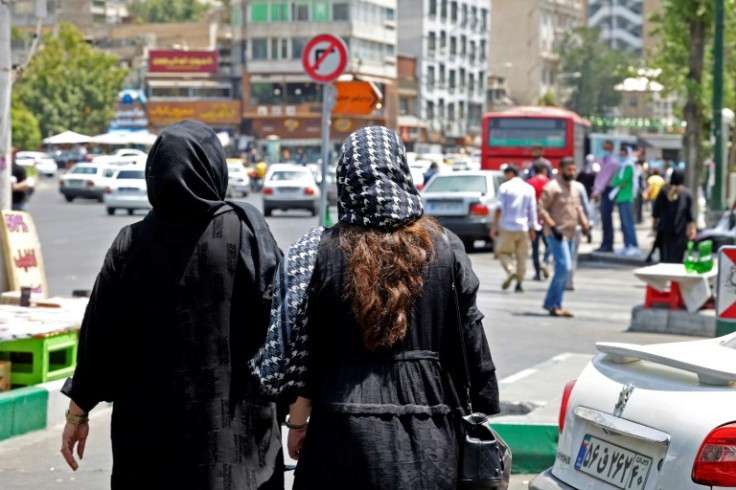Anger As Iran Woman Dies After Morality Police Arrest

A young Iranian woman who fell into a coma after being arrested in Tehran by the notorious morality police died on Friday, state media and her family said, with activists urging those responsible for her "suspicious" death be brought to justice.
Mahsa Amini, 22, was on a visit with her family to the Iranian capital when she was detained by the police unit responsible for enforcing the Islamic republic's strict dress code for women, which include the compulsory wearing of the headscarf in public.
"Unfortunately, she died and her body was transferred to the medical examiner's office," Iranian state television reported.
Persian-language media, including the Iran Wire website and the Shargh newspaper have quoted her family as saying that she had been rushed to hospital in a coma this week a few hours after her arrest and had now died.
It is not yet clear what happened between her arriving at the police station and her departure for hospital. The 1500tavsir channel which monitors violations in Iran said she had suffered a blow to the head.
Images posted on social media showed crowds gathering outside the hospital where she was being treated and police seeking to disperse the dozens who had gathered.
"The circumstances leading to the suspicious death in custody of 22-year-old young woman Mahsa Amini, which include allegations of torture and other ill-treatment in custody, must be criminally investigated," Amnesty International said.
"The so-called 'morality police' in Tehran arbitrarily arrested her three days before her death while enforcing the country's abusive, degrading and discriminatory forced veiling laws. All agents and officials responsible must face justice," it added.
On Twitter, Prominent Iranian lawyer Saeed Dehghan described Amini's death as a "murder", saying she had suffered a blow to the head which had caused the base of her skull to fracture.
State television broadcast images on Friday purportedly showing her falling to the ground inside a large hall full of women while arguing with one of the female instructors about her dress.
In a statement on Friday, Tehran police insisted "there was no physical encounter" between officers and Amini.
It said Amini was among a number of women who had been taken to a police station for "instruction" on the dress code on Tuesday.
"She suddenly fainted while with other visitors in the hall," the statement said.
Earlier, President Ebrahim Raisi ordered the interior minister to open an inquiry into Amini's case.
Several lawmakers said they would raise the case in parliament while the judiciary said it would form a special task force to investigate.
The head of the New York-based Center for Human Rights in Iran, Hadi Ghaemi, described her death as a "preventable tragedy".
"The government in Iran is responsible. She was arrested under the guise of the state's discriminatory forced-hijab law and died in state custody," he said.
Amini's death comes amid growing controversy both inside and outside Iran over the conduct of the morality police, known formally as the Gasht-e Ershad (Guidance Patrol).
In July, a video of a woman standing in front of one of the force's vans pleading for her daughter's release went viral on social media.
The veiled woman kept holding on to the van as it pulled off, only being thrown clear after it gathered speed.
Also in July, a young Iranian woman, Sepideh Rashno, disappeared after becoming involved in a dispute on a Tehran bus with another woman who accused her of removing her headscarf.
She was held by the Revolutionary Guards and appeared on television in what activists said was a forced confession before being released on bail in late August.
Activists accuse Iran of being in the throes of a major crackdown that is affecting all areas of society, including a new push against the Bahai religious minority, death sentences for gays, a surge in executions and arrests of foreign nationals.
Raisi plans to travel to New York for the UN General Assembly next month where he is set to face intense scrutiny over Iran's human rights record.
© Copyright AFP 2024. All rights reserved.




















